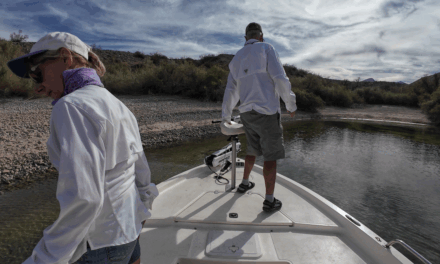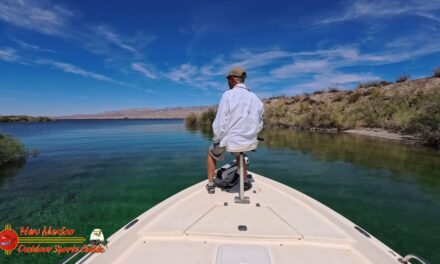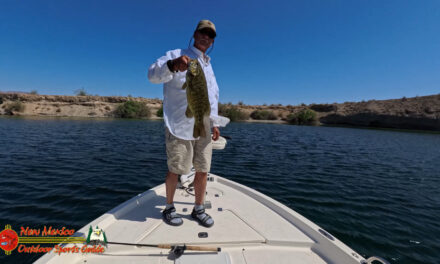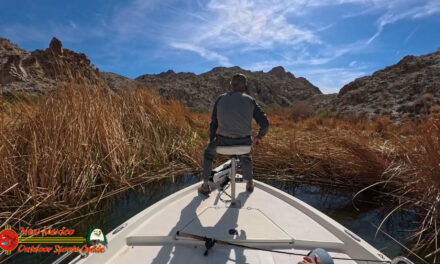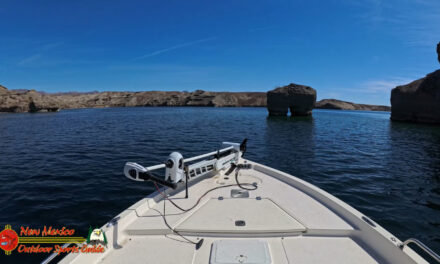Structure, in relation to a lake, is any bottom contour change. Cover is any object that is in the lake, natural or man made. On any given lake, fish relate to the available structure, just as humans and animals relate to contour changes on the earth. We all adapt to our environment around us , whether it is located on a hilltop, desert plain, or down in a valley. And, on that structure, we live in a home, just as fish make their home in the available cover that encompasses them.
For a better understanding about structure and cover, consider the following scenario as applied to their daily movements within their environment. You, the angler, live in a house on top of a hill, drive the same road to work each day, and basically have a routine for everything you do each da y. On arrival, you enter your office, go to your desk and sit in your chair. At break, you follow a hall to the break room, return to your desk via the same path. Lunch time finds you hungry, so you seek out a place that can serve you the most food for your money. You return to your office, follow a daily routine of work. Your work day completed, you return home along the same road that you always travel. Once home, you will usually ensue the same daily patterns, and then finally retire to bed, where you are at rest for awhile. Upon awakening, your hungry again, and begin to se arch the refrigerator for a quick and easy meal, before starting your same workday travels all over again. This short description of a human relating to patterns, habits, contour changes, cover, food, and survival can be applied to any specie living within his given surroundings.
A bass will establish a home, travel a given path in their daily living cycles, and will return to the same spawning areas each year by travelling contact points. Put simply, they follow structure to get where they are going, and use cover to live in, ambush prey from, and as an added dimension in following structure parallel.
The above human example exemplifies that all living creatures live a structure/cover oriented life. We have a place we live, have roads we follow, generally eat at scheduled times, rest and sleep, and evolve into seasonal changes, acclimating our bodies to temperature changes and weather elemen ts on a daily basis. The only thing that would prevail our changing or moving would be a threat to our existence. Humans relocate because of job transfers, degeneration of their communities, and food availability. A young bass will establish his living quarters and live his entire existence t here, if he is accommodated with good oxygen and ph, available forage, and safety from predators. Other animals are no different in their habits, travels, feeding and rest. They rest around the same trees, follow the same path to food and water, and their big meal is early morning and late eve ning. Bass are the same in their feeding habits, with two major feeds and two minor meals a day. They have three stages that their brain goes through each day, which is active, inactive, and rest. Per John Hope, noted bass tracker and author of “Tracking Trophy Bass”, when bass are resting, t hey are impossible to catch.” That state is just like our sleep state. However, when they become active, they go on a major feed, much like when we wake up, we want breakfast pretty quick, because we are our most hungry at that time.
Structure affords the bass a trail to follow during his active state, and cover provides him housing and ambush protection. If you encountered a robber in your home, the best place for you would be behind some cover in the darkest area. The robber could not see you, however, if you had a hall light on , you could see him. Dark cover gives a bass his best advantage to ambush his prey. For years, a common myth has been that bass have an aversion to sunlight, which is simply not true! Bass can and do adjust their eyes to varying conditions of light quite well. Because the forage has difficulty seeing the bass which are hidden in darker cover, the bass can use his superior vision for an easy meal.
As you can see, structure and cover are extremely important in the day to day rituals of all species, whether animal or human. It provides us with an obstacle course to follow, and gives us direction to find our way in the jungle of cover that abounds. So, the next time you go to the lake to f ish, take time to study your topo map before you go. Locate the areas with good structure, and make a few calls to find out the available cover. It just might increase your chance for the lunker of your dreams.
Sherry Ruslink is a professional angler and licensed guide on Lake Fork. She runs a full service Bass Fishing Guide Business, which includes 2 full time licensed guides. Sherry’s guide service offers individual, corporate/ group, instructional, and tournament prefish trips. Day trips, night trips, and ½ day bass fishing trips, as well as in the winter months, Crappie trips. Sherry can be reached at 903-473-1016, 1-877-523-9227 (ladybas), email: ladybass@koyote.com , URL: http://www.texs.com/ladybass/fork.htm
Sponsor’s include – Triton Boats/Mariner Motors, Four Seasons Marine – Longview, TX, Castaway Rods – Factory Team, Lowrance, Motorguide, Lockhart Lures, Gene Larew Lures, McCoy’s Mean Green Fishing Line, and Top Brass Tackle. – Lake Mohave
– Lake Mohave


